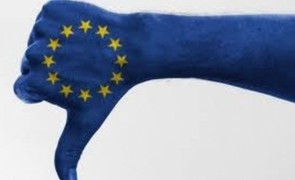One week after the European elections, the results continue to generate comments and assertions. Most analyses tend to converge upon the idea that, fortunately, nationalist, populist and parties claiming sovereignty failed to make significant gains or anyhow, they stayed below levels initially feared.
Voter mobilization which resulted in a turnout of more than 50%, almost 10 percentage points above the 2014 values, limited the fall of pro-European parties. Hence rush and definite conclusions: Europeans voted for deeper European integration.
Let`s not jump to conclusions. This is not an unconditional vote.
I find that despite the signals coming from European voters over the last decades, politicians and a good portion of analysts ignore the key point. The European Union is for Europeans nothing more than a vehicle, not at all a purpose in itself. It is a vehicle which they boarded and supported on the way to prosperity, a freer and better life. I believe that any analysis should be grounded in this down-to-earth, albeit less uplifting truth.
Peace on the continent is taken for granted and frankly, I doubt that European masses put it down to the existence of the EU, though history has shown how easy things can go wrong even on a continent such as Europe.
Things are different, however, when it comes to monthly wages, dropping purchasing power or daily life, “freshened up” by growing numbers of non-European immigrants for whose entry, at the end of the day, there was no public vote.
This is the very source which has brought rise to Euroscepticism; the economic decline and economic reconfiguration on different grounds, rising social polarization, middle class erosion, disengagement of economic elites from the general public. And it will remain here.
 Euroscepticism cannot be defeated unless the pre-requisites of EU-wide prosperity are redesigned. This is an objective as simple as it is ignored by both the business environment and politicians. This is the backdrop against which the issue of immigration gained prominence and which led to the rise of far-right or nationalist parties. This is the backdrop against which the inexcusable short-sightedness of mainstream parties resulted in the emergence of anti-establishment parties, many of which new comers or marginal until recently.
Euroscepticism cannot be defeated unless the pre-requisites of EU-wide prosperity are redesigned. This is an objective as simple as it is ignored by both the business environment and politicians. This is the backdrop against which the issue of immigration gained prominence and which led to the rise of far-right or nationalist parties. This is the backdrop against which the inexcusable short-sightedness of mainstream parties resulted in the emergence of anti-establishment parties, many of which new comers or marginal until recently.
Let`s be realistic. Europeans are not concerned with integration vs separation. These are topics debated in the ivory tower of EU politics and institutions. The Europeans are genuinely concerned with prosperity vs poverty and social polarization.
You may well wonder, should this assumption be correct, how can the limited success of Eurosceptic parties in the EU elections be explained?
The reason, I reckon, is that the Eurosceptics` proposals were radical or “outlandish” enough to scare off most Europeans. The prospect of them coming to power painted a deterring picture as they called for a less politically stable Europe and questioned the democratic values. These parties are “anti” rather than capable of providing constructive solutions which would convince the majority of voters to give up on the order that they know for the uncertain and experimental.
This eventually determined the Europeans to vote for the lesser evil. But an evil, nonetheless. It means that the winning parties would be making a big mistake to imagine that the ballot was cast for political goals professing deeper integration or another agenda designed in the political laboratory. Unless they wake up from this delusion, the next vote could feel like a forced landing.
Why? Because continuing down the path of economic polarization will drive radicalization further. Meanwhile, Eurosceptic parties will tone it down to become more convincing and acceptable to voters. There are already significant signs in this regard.
The never-ending Brexit with its political turmoil had the Eurosceptic parties give up their objective to exit the EU. A telling example is Marine Le Pen`s National Rally which does not wish to take France out of the Union anymore, but unify far-right movements within the EU. It is worth noting that leaving the Eurozone has also been abandoned, an idea which until recently had been advanced by the same party. The anti-immigration rhetoric remained and will definitely continue to remain in place.
The danger is that as these parties are putting forward increasingly “reasonable” proposals, their approval ratings will go up. This trend, coupled with mainstream parties mistaking the objectives, which should be primarily economic, for the means, obviously political, might strengthen anti-European forces going forward.
There is only one solution to prevent this from happening. It is completely uncomplicated which is why not considering it is incomprehensible. Reconnect the mainstream political agenda to the priorities of most Europeans and explain in plain language how lost prosperity will be restored.
For that they need to get down from their ivory tower and rebalance the ailing capital-labor relationship.
Have a nice weekend!



